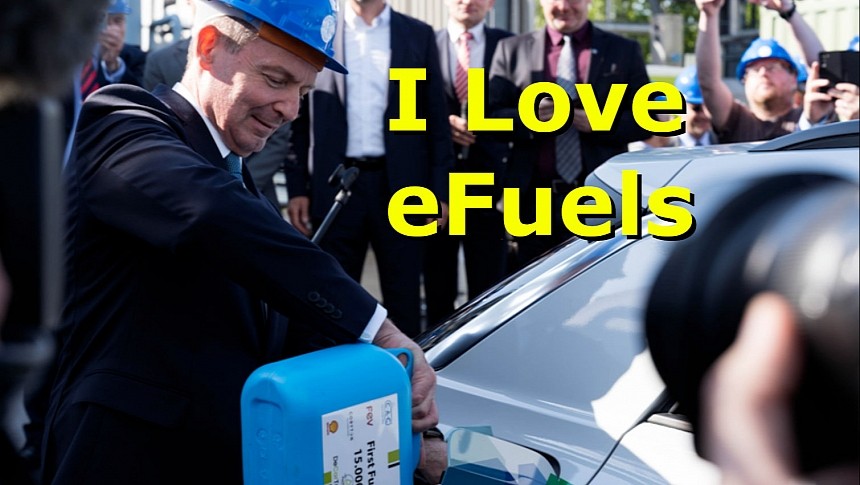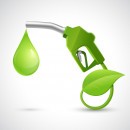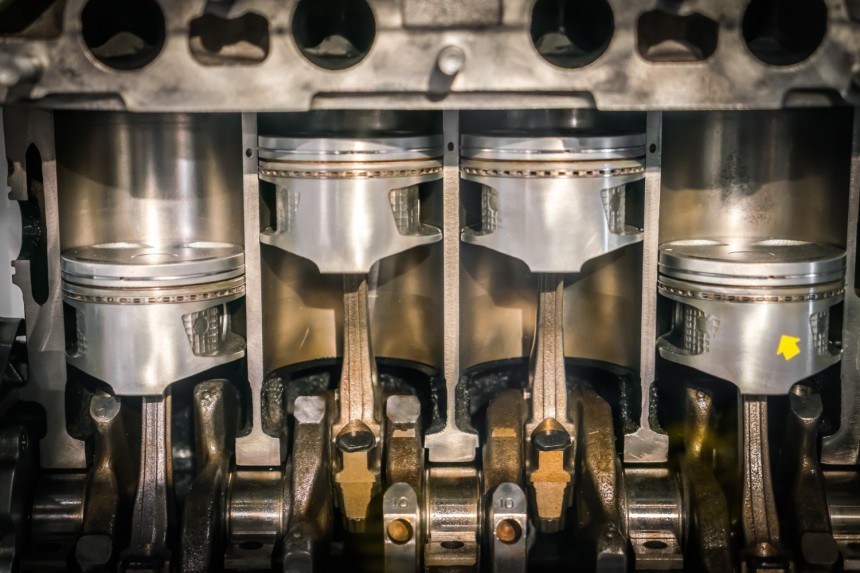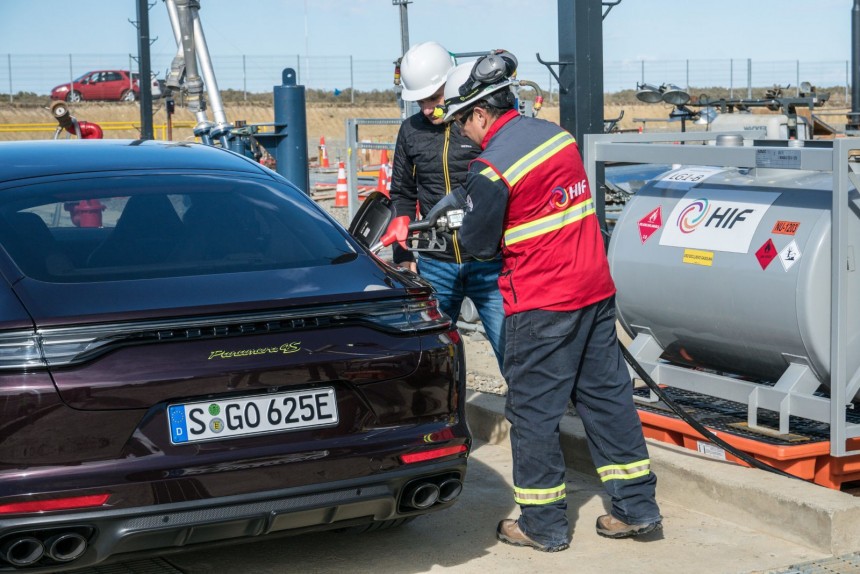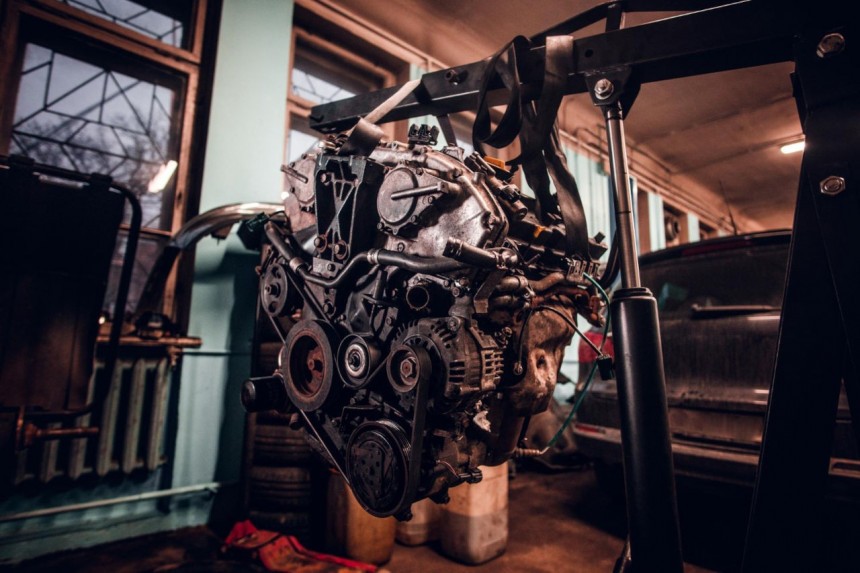The 466 miles / 750 km range Mercedes-Benz CLA electric concept, BMW's Vision Neue Klasse (trolling Merc, huh?), or the hottie VW ID. GTI clearly stole the German show. They try to prove a point: the German car industry is still the best, and it's going all-electric full-throttle.
Except things are not quite as they seem. At least from the perspective of an electrohead trying to be unbiased.
blackmailing negotiating the terms of ICE phase-out from cars with the EU.
At the beginning of 2023, the European Commission's proposal to ban sales of new ICE cars starting from 2035 seemed to be accepted by all European countries. But in spring, a certain Volker Wissing turned 180 degrees and made clear to everyone that Germany would not agree to the demise of internal combustion engines after all.
It was a hit below the belt because Herr Wissing is Germany's Federal Minister for Digital and Transport, and basically, he represents the most potent car industry on the continent. Around 2 million workers are employed directly and indirectly by German car and parts manufacturers, and about 800,000 of them are involved in construction and assembling cars in factories.
Maybe you are aware of strong concerns from auto industry's unions all over Europe regarding potentially massive layoffs because electromobility drives traditional engines' demise. According to the most alarmist forecasts, around 14 million jobs are at risk in Europe's car industry.
Of course, this is an exaggeration, but unfortunately, political interests distort the truth. Suddenly, electric cars became the villains in the political war meant to gather as many votes as possible. Therefore, the Germans found the weak spot in the EU's plans to demise ICEs and used unions' concerns as leverage to force a compromise.
In short, ICEs using the "magical" e-fuels won't be banned after 2035. Everybody in the industry agrees on the importance of electrification of cars, but at the same time, everybody in the industry is happy to keep the ICE concept alive. This paradox is only getting more aberrant as Dr. Volker Wissing used the IAA MOBILITY to preside at a three-day conference about e-fuels.
How come the e-fuels "pave the way for clean mobility?"
Wissing's speech was full of nice eco-friendly terms such as "electricity-based synthetic fuels" or "climate-friendly fuels." Wissing emphasized the "market ramp-up of e-fuels" necessity, the reduction of "the currently high costs," as well as the need to "increase production capacities." The German official revealed that this "international e-fuels dialogue" goal was to "make electricity-based fuels available for all modes of transport."
Now, replacing fossil-fuel-based gasoline and diesel with zero-emission gasoline and renewable diesel seems like an excellent idea. So long, pollutants and GHG (greenhouse gases) emissions! We can burn these new so-called clean fuels in our good ol' ICE cars – around 1.3 billion – without harming the environment anymore. Petrolheads, rejoice! But not so fast…
When burnt, hydrogen is the only fuel that releases no pollutants whatsoever; burning it results in electricity and water vapors. Burning any other liquid fuel releases some amounts of fine particles and pollutant residues. They are indeed so much cleaner – or, more appropriately, so much less polluting – than fossil-fuel-based fuels or even biofuels. But they are not zero-emissions, as advertised.
Unfortunately, there is no chance for hydrogen to be successfully used in cars' current internal combustion engines. Toyota's desperate attempts to tame hydrogen in the same way as gasoline are a hint. So, replacing gasoline and diesel with hydrogen in the 1.3 billion ICE vehicles in the world is simply not feasible. Did I mention the huge challenges of storing it and refueling it?
Biofuels are not a valid option anymore in the long term and at large scale because they still require mixing in different ratios to oil-based fuels. Burning them in ICEs doesn't slash emissions and pollutants according to bold climate objectives, and they contribute to world hunger, as well as desertification because of intensive farming.
That's why synthetic fuels are now "the next big thing" for the transportation sector, according to big auto, shipping, and aviation players. They are praised for being capable of providing an "up to 90% reduction in CO2 emissions" with no significant overhaul for ICE technology. Besides, they are created using CO2 in the atmosphere and renewable energy.
Wissing, along with Porsche, Mercedes-Benz, or BMW – the pinnacle of the German auto industry – basically says that e-fuels are the best solution to the stringent need to achieve carbon neutrality by 2050 in the transportation sector. It goes without saying that we should keep the ICEs alive to use these marvelous e-fuels.
E-fuels are "an important and necessary addition to electromobility"
Where did we hear that before? Oh, right, biofuels were at one point a "necessary addition" to conventional fuels. Then natural gas was advertised as the greenest fossil fuel and became the so "necessary addition" to battery hybrids. More recently, hydrogen has been considered almost more than a "necessary addition" to battery electric vehicles, firstly in fuel cell technology and then directly in internal combustion engines.
Today, Volker Wissing is pretty sure e-fuels are that "necessary addition" to electromobility. By the way, in May, his Ministry awarded €7 million / $7.5 million to the new REF4FU ("Refineries for Future") project. The Karlsruhe Institute of Technology coordinates it, and it's aimed at "developing, testing, and standardizing 100% renewable fuels for all transport sectors, including water and air traffic." One of the researchers' conclusions is that gasoline will disappear from the market first, hence the urgency to replace it with a similar but sustainable fuel: synthetic gasoline.
What do you think all these "necessary addition" fuels have in common? They all need internal combustion engines to justify their existence. No ICE, no e-fuels – it's that simple. And what are the two major advantages of ICEs against battery EVs that the popular wisdom is obsessed about? Much longer range and much shorter refueling times.
This is because liquid hydrocarbons have a higher energy density than batteries. This also means pollution when burning those hydrocarbons; this is Mr. Wissing's "trojan horse" argument: e-fuels erase pollution. Not entirely, but the "up to 90% emissions reduction" paradigm steals the show.
It quickly makes everyone forget about ICE's poor efficiency compared to electric motors, reliability compromises because of technological complexity, etc. But, hey, why stumble on details when German car manufacturers are so confident about the bright future of e-fuels?
Wissing and the biggest German car makers are basically lobbying for shifting the fossil fuel industry towards these new and "marvelous" carbon-neutral fuels. They are backed by researchers from the new REF4FU ("Refineries for Future") project, who emphasize that "only 60 percent of the fuel today is consumed by individual car traffic."
Phasing out of cars ICEs doesn't mean liquid fuels won't be needed anymore. There are still various industrial, energy, and transport applications that will continue relying on liquid fuels. This is another convenient reason not to ditch internal combustion engines in Europe after 2035. This suits very well the European car industry interests, employing directly and indirectly around 14 million workers.
Still, only some agree with Germans' plans to keep alive the ICE beyond 2035. After all, betting big on e-fuels is like walking on thin ice because they are currently being produced on a pre-industrial scale. Some are not convinced that e-fuels are the optimal solution for the long term, but we'll talk about it in the second part of this material.
Ich liebe dich immer noch sehr, Verbrennungsmotor!
You would be wrong to think the above expression means Germans love electromobility. It translates like this: "I still love you a lot, internal combustion engine!" Of course, I'm talking about GermanyAt the beginning of 2023, the European Commission's proposal to ban sales of new ICE cars starting from 2035 seemed to be accepted by all European countries. But in spring, a certain Volker Wissing turned 180 degrees and made clear to everyone that Germany would not agree to the demise of internal combustion engines after all.
It was a hit below the belt because Herr Wissing is Germany's Federal Minister for Digital and Transport, and basically, he represents the most potent car industry on the continent. Around 2 million workers are employed directly and indirectly by German car and parts manufacturers, and about 800,000 of them are involved in construction and assembling cars in factories.
Maybe you are aware of strong concerns from auto industry's unions all over Europe regarding potentially massive layoffs because electromobility drives traditional engines' demise. According to the most alarmist forecasts, around 14 million jobs are at risk in Europe's car industry.
In short, ICEs using the "magical" e-fuels won't be banned after 2035. Everybody in the industry agrees on the importance of electrification of cars, but at the same time, everybody in the industry is happy to keep the ICE concept alive. This paradox is only getting more aberrant as Dr. Volker Wissing used the IAA MOBILITY to preside at a three-day conference about e-fuels.
How come the e-fuels "pave the way for clean mobility?"
Wissing's speech was full of nice eco-friendly terms such as "electricity-based synthetic fuels" or "climate-friendly fuels." Wissing emphasized the "market ramp-up of e-fuels" necessity, the reduction of "the currently high costs," as well as the need to "increase production capacities." The German official revealed that this "international e-fuels dialogue" goal was to "make electricity-based fuels available for all modes of transport."
Now, replacing fossil-fuel-based gasoline and diesel with zero-emission gasoline and renewable diesel seems like an excellent idea. So long, pollutants and GHG (greenhouse gases) emissions! We can burn these new so-called clean fuels in our good ol' ICE cars – around 1.3 billion – without harming the environment anymore. Petrolheads, rejoice! But not so fast…
Unfortunately, there is no chance for hydrogen to be successfully used in cars' current internal combustion engines. Toyota's desperate attempts to tame hydrogen in the same way as gasoline are a hint. So, replacing gasoline and diesel with hydrogen in the 1.3 billion ICE vehicles in the world is simply not feasible. Did I mention the huge challenges of storing it and refueling it?
Biofuels are not a valid option anymore in the long term and at large scale because they still require mixing in different ratios to oil-based fuels. Burning them in ICEs doesn't slash emissions and pollutants according to bold climate objectives, and they contribute to world hunger, as well as desertification because of intensive farming.
That's why synthetic fuels are now "the next big thing" for the transportation sector, according to big auto, shipping, and aviation players. They are praised for being capable of providing an "up to 90% reduction in CO2 emissions" with no significant overhaul for ICE technology. Besides, they are created using CO2 in the atmosphere and renewable energy.
E-fuels are "an important and necessary addition to electromobility"
Where did we hear that before? Oh, right, biofuels were at one point a "necessary addition" to conventional fuels. Then natural gas was advertised as the greenest fossil fuel and became the so "necessary addition" to battery hybrids. More recently, hydrogen has been considered almost more than a "necessary addition" to battery electric vehicles, firstly in fuel cell technology and then directly in internal combustion engines.
Today, Volker Wissing is pretty sure e-fuels are that "necessary addition" to electromobility. By the way, in May, his Ministry awarded €7 million / $7.5 million to the new REF4FU ("Refineries for Future") project. The Karlsruhe Institute of Technology coordinates it, and it's aimed at "developing, testing, and standardizing 100% renewable fuels for all transport sectors, including water and air traffic." One of the researchers' conclusions is that gasoline will disappear from the market first, hence the urgency to replace it with a similar but sustainable fuel: synthetic gasoline.
What do you think all these "necessary addition" fuels have in common? They all need internal combustion engines to justify their existence. No ICE, no e-fuels – it's that simple. And what are the two major advantages of ICEs against battery EVs that the popular wisdom is obsessed about? Much longer range and much shorter refueling times.
This is because liquid hydrocarbons have a higher energy density than batteries. This also means pollution when burning those hydrocarbons; this is Mr. Wissing's "trojan horse" argument: e-fuels erase pollution. Not entirely, but the "up to 90% emissions reduction" paradigm steals the show.
It quickly makes everyone forget about ICE's poor efficiency compared to electric motors, reliability compromises because of technological complexity, etc. But, hey, why stumble on details when German car manufacturers are so confident about the bright future of e-fuels?
Phasing out of cars ICEs doesn't mean liquid fuels won't be needed anymore. There are still various industrial, energy, and transport applications that will continue relying on liquid fuels. This is another convenient reason not to ditch internal combustion engines in Europe after 2035. This suits very well the European car industry interests, employing directly and indirectly around 14 million workers.
Still, only some agree with Germans' plans to keep alive the ICE beyond 2035. After all, betting big on e-fuels is like walking on thin ice because they are currently being produced on a pre-industrial scale. Some are not convinced that e-fuels are the optimal solution for the long term, but we'll talk about it in the second part of this material.
